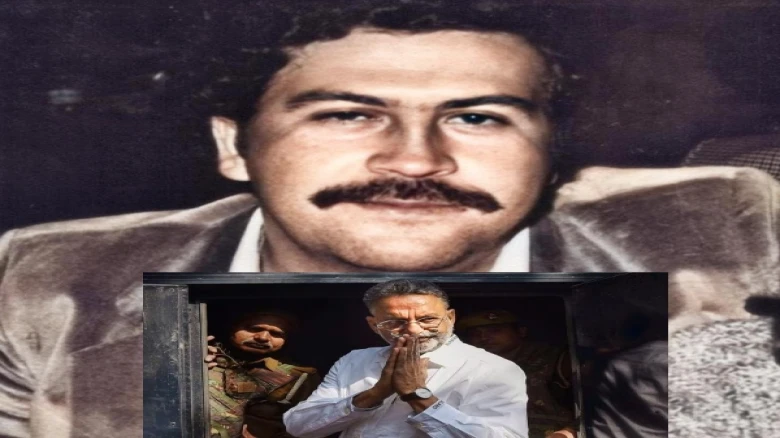Article

Despite their starkly different backgrounds and geographical locations, the parallels in their stories are striking
Digital Desk: In the annals of criminal history, Mukhtar Ansari and Pablo Escobar stand out as formidable figures who wield immense power, even behind bars. Mukhtar Ansari, an infamous mafia don from India, and Pablo Escobar, the notorious Colombian drug lord, both achieved a level of dominance within the confines of prison that is exceptional.
Despite their starkly different backgrounds and geographical locations, the parallels in their stories are striking.
During his time in Ghazipur district jail, Mukhtar Ansari transformed the very nature of imprisonment. His arrogance knew no bounds as evident by his audacious act of digging a pond within the prison premises to rear fish. This act symbolised his fearless disregard for authority and ability to bend the rules to suit his desires.
Similarly, Pablo Escobar's reign over the Colombian underworld extended into the realm of incarceration, where he continued to orchestrate his drug empire from the confines of his prison cell.
One of the most astonishing aspects of Mukhtar Ansari's term in jail was that he controlled the environment within the prison walls. Barrack number 10 became synonymous with his name, serving as a hub for his operations. Decorated lavishly and manned by his loyal henchmen, it resembled more of a headquarters for his criminal enterprise than a typical prison cell.
Similarly, Pablo Escobar's influence permeated every facet of La Catedral, the luxurious prison he constructed for himself, where he lived like a king and conducted his illicit activities with immunity.
The parallels between Mukhtar Ansari and Pablo Escobar extend beyond their ability to exercise control within prison walls. Both men, within their respective environments, host meetings, issue tenders, and even conduct court proceedings. Mukhtar Ansari's "court" under the neem tree near barrack number 10 served as a testament to his power, where individuals from far and wide sought his judgment.
Similarly, Pablo Escobar's influence extended beyond the prison gates, with government officials and dignitaries seeking his favour.
However, despite their apparent invincibility, Mukhtar Ansari and Pablo Escobar eventually faced their downfalls. Mukhtar Ansari's demise after spending about 18 years and six months in jail reminds us of the short-lived nature of power. Pablo Escobar's eventual capture and death marked the end of an era in the annals of organised crime.
Their stories are exemplary tales of the dangers of uncontrolled power and the inevitable consequences of living life on the wrong side of the law.
Leave A Comment